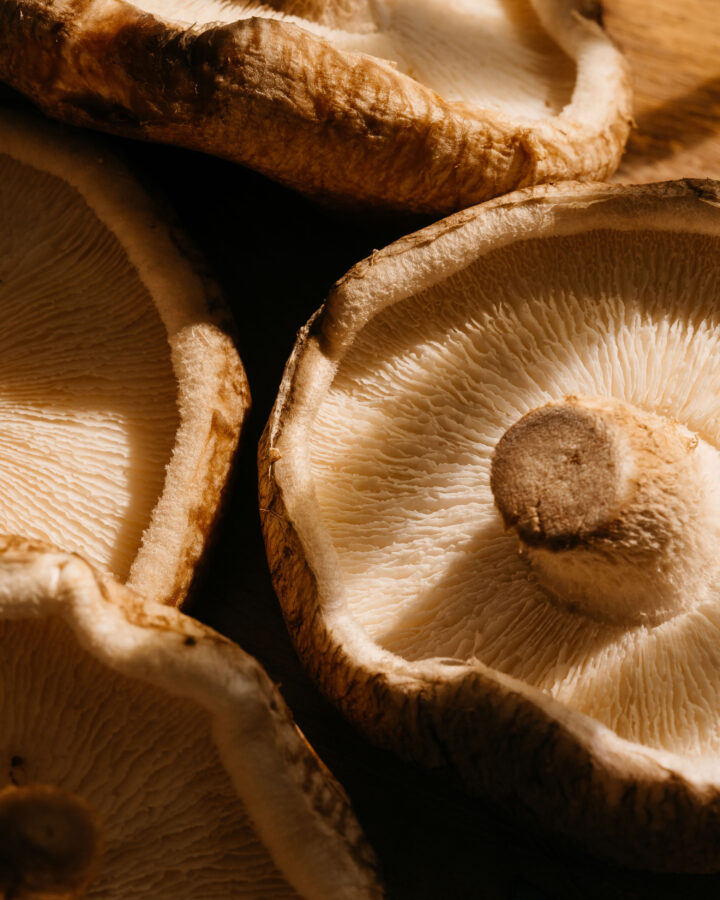This Trace Mineral May Help Slow Biological Aging

A new study shows that small amounts of copper may help keep your cells younger, longer.
It turns out one of the smallest nutrients in your diet may have a surprisingly big impact on how you age. A new analysis of more than 18,000 U.S. adults found that people who consumed more copper-rich foods (think nuts, seeds, legumes, leafy greens, shellfish, and dark chocolate) tended to have younger biological ages. Those in the highest copper group appeared three to four years “younger” biologically than those with the lowest intake.
The relationship wasn’t linear: the biggest benefits came from moving from low to adequate copper intake, with improvements tapering off at higher levels. Much of this advantage seems to come from copper’s role in reducing [in-fluh-mey-shuhn]nounYour body’s response to an illness, injury or something that doesn’t belong in your body (like germs or toxic chemicals).Learn More, one of the key drivers of aging. People who consumed more copper also scored lower on the Dietary Inflammatory Index (DII), a sign of a more [an-tee-in-flam-uh-tawr-ee]adjectiveReducing inflammation, which contributes to better overall health.Learn More diet overall.
Higher dietary copper was linked to “younger” biological age.
Each 1-unit increase in copper was associated with:
- 1.12 year reduction in PhenoAge, a person’s biological age based on multiple clinical biomarkers
- 1.45 year reduction in PhenoAgeAccel, a measure of how much an individual’s biological age deviates from their chronological age.
People in the highest copper quartile looked ~3.2–4.0 biologically “younger” years than the lowest quartile. The dose–response was non-linear: biggest benefit at lower intakes, then plateau.
Why it might work: Diets higher in copper tended to be less inflammatory. Copper acts as a cofactor for enzymes that combat oxidative stress and cellular wear and tear. Together, these effects may explain why copper intake is linked to lower measures of biological aging.
What Should You Put on Your Plate To Age In Reverse?
This isn’t a supplement story; it’s a diet pattern story. Copper-rich foods also deliver fiber, phytonutrients, and healthy fats that support anti-inflammatory balance.
- Aim for at least 0.9 mg of copper per day from whole foods. That’s the recommended daily allowance (RDA). Some new research suggests that 1.2–1.6 mg/day may optimize brain health for older adults.
- Here are the top food sources of copper:
- Make it delicious:
- Lunch: Lentil–quinoa bowl with arugula, tahini-lemon dressing, and sesame seeds.
- Dinner: Seared salmon (or tofu) with farro, spinach, and walnut–herb pesto.
- Snack: Dark chocolate with a handful of cashews.
- Lunch: Lentil–quinoa bowl with arugula, tahini-lemon dressing, and sesame seeds.
- Bonus points: Combine copper-rich foods with other anti-inflammatory staples like olive oil, herbs, cruciferous vegetables, and berries, and cut back on ultra-processed foods and added sugars.
- Tiny Swaps, Big Payoffs:
- Swap croutons for toasted sunflower seeds on salads.
- Stir cacao powder into Greek yogurt.
- Trade one refined-grain side for lentils or farro a few times a week.
- Finish roasted greens with tahini and lemon.
A Mediterranean-leaning, plant-rich diet that includes copper-containing foods may quietly support [lon-jev-i-tee]nounLiving a long life; influenced by genetics, environment, and lifestyle.Learn More by dialing down inflammation — and keeping your cells acting younger, longer.
How to Boost Copper Absorption Naturally
Even the healthiest diet can fall short if your body isn’t absorbing minerals efficiently. Here’s how to make copper work harder for you:
- Pair with vitamin C: Combine copper sources with citrus, bell peppers, or broccoli to enhance absorption.
- Balance [zingk]nounA mineral important for immune function and wound healing.Learn More intake: High-dose zinc can block copper uptake — so avoid unnecessary zinc supplements.
- Rethink iron dosing: Large doses of iron can interfere with copper absorption; use only when prescribed.
- Add healthy fats: Enjoy copper-rich meals with avocado, nuts, or olive oil to improve mineral transport.
A few small shifts, like sprinkling sunflower seeds on a salad, savoring dark chocolate, or cooking with mushrooms and chickpeas, can keep your cells younger and your brain sharper. No megadoses required! Just mindful, mineral-rich meals that work as hard as you do.
Read This Next
The information provided in this article is for educational and informational purposes only and is not intended as health, medical, or financial advice. Do not use this information to diagnose or treat any health condition. Always consult a qualified healthcare provider regarding any questions you may have about a medical condition or health objectives. Read our disclaimers.

